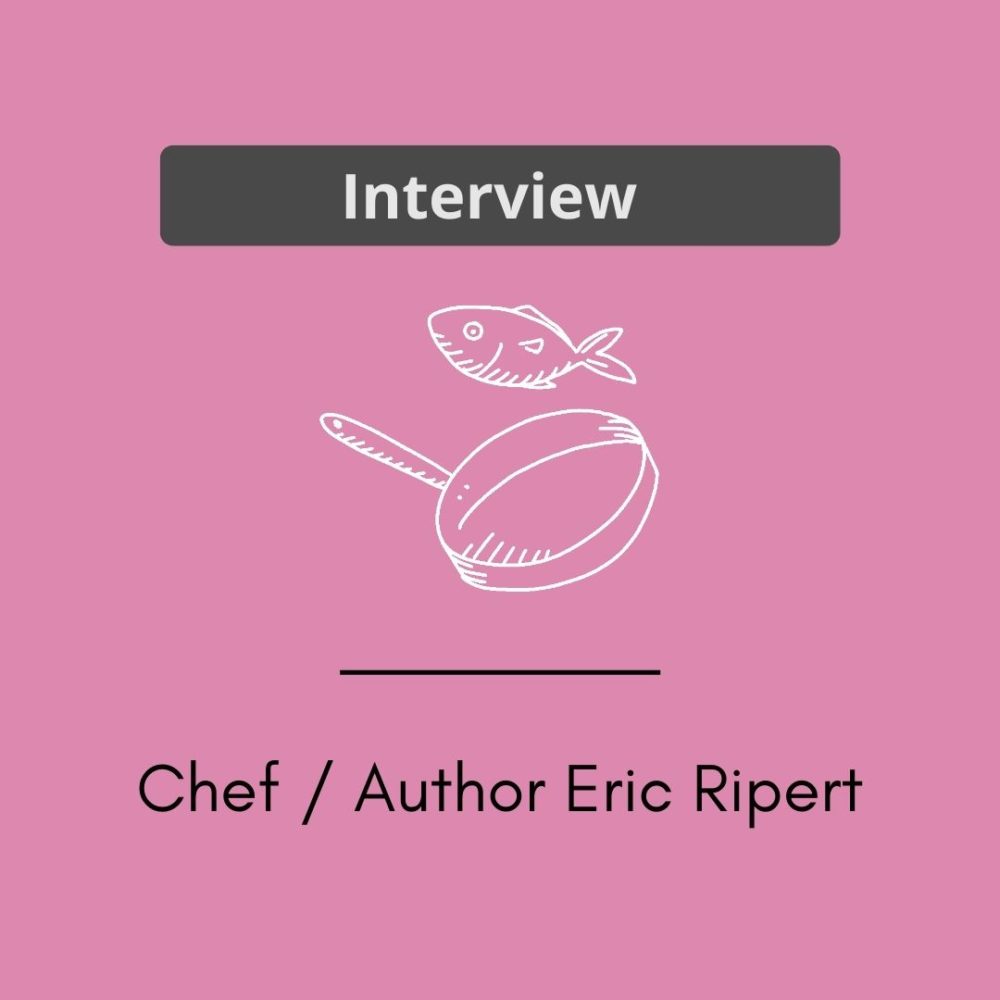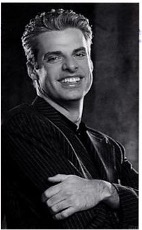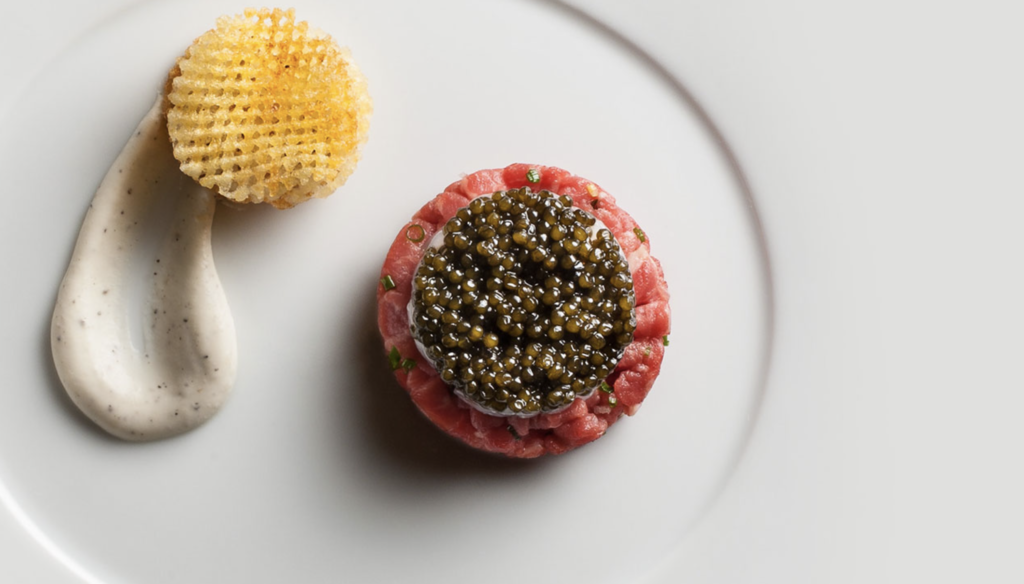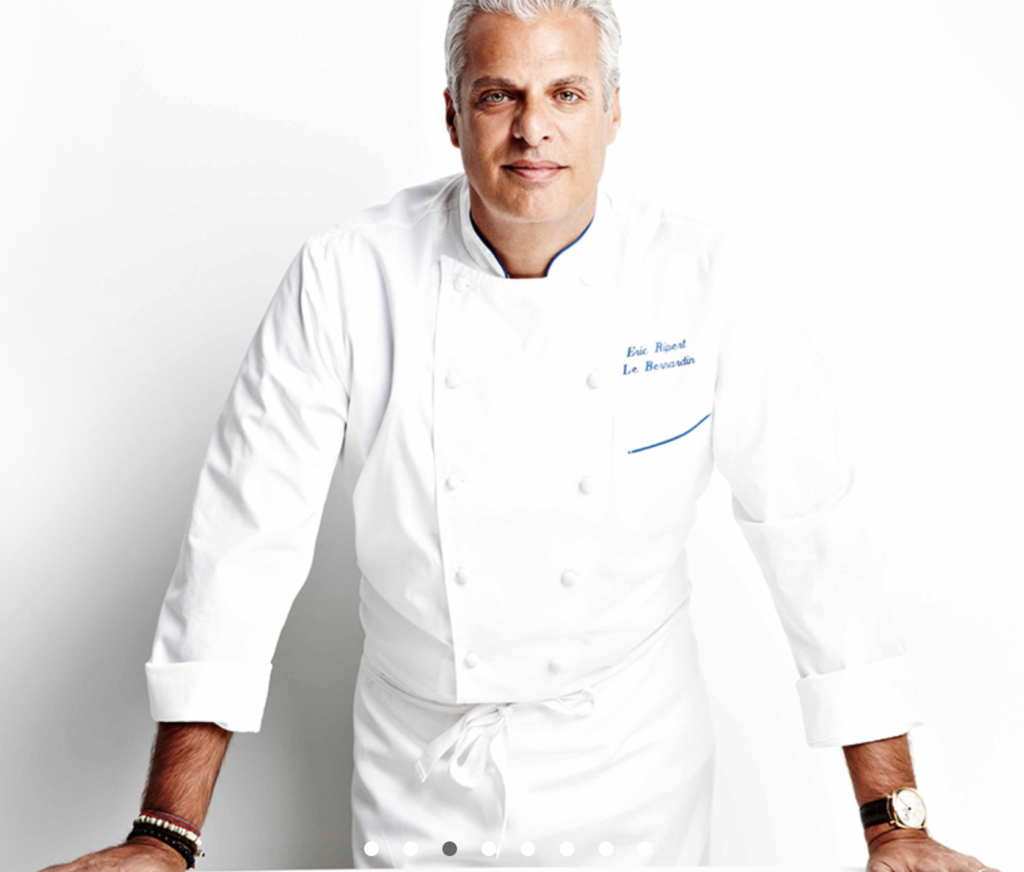
I stumbled upon a notice that food writer Florence Fabricant is hosting a series of “Stirring the Pot” events out in Eastern Long Island this month. What caught my eye in the notice was that one of the events features Eric Ripert. He’s showcased at a fundraiser for the Haymarket School that includes a demo, other goodies, and his newest (2021) cookbook, Vegetable Simple (the event is also available online). This put me in mind of …
… an interview I conducted with Eric Ripert for a cookbook newsletter I created for his publisher (and my then-employer). During the interview, Ripert shared insights into his food thinking and the “crazy” secret ingredient he feels is necessary.
For this Throwback Thursday post, I present a lightly edited version of that interview:
VP: Many of the top chefs In America have become household names. You yourself have been featured in mainstream media, even People magazine. How has this culture of celebrity affected you as a chef?
Eric Ripert: Periodically I teach classes at cooking schools, and I typically ask my students what their professional goals are. When some one says, “I want to be the number one chef in America,” I say that’s wrong — they shouldn’t be thinking of being number one, they should be thinking of the food.

My ultimate goal is not to be famous, but to communicate my passion for food, to bring the concepts of good ingredients and preparation to an audience: Everything I’ve done has been in service of that goal. When I first walked into Le Bernardin, I had a strong extra sense that it wasn’t just another restaurant where I was going to work. lt’s difficult to describe, but it’s been a special place-on every level, not just a job, but an instrument for me to share my passion.
My cookbooks further that goal in a different way, as does my teaching.
And there are ways in which the celebrity and the media can help those goals, too.
[An early] People magazine article definitely had an impact on the clientele of Le Bernardin. We had traditionally attracted businesspeople — people who work in New York, or who are in New York frequently and know the restaurant. But through that type of mainstream media, so many more people became aware of us — it brought us a broader range of customers, and that, in turn, expanded our role as educators.
VP: What do you mean by “educators”?
Eric Ripert: Well, some people who are new to [the restaurant] have relatively uneducated palates — they typically eat fairly unsophisticated food. We want to make these customers comfortable with unfamiliar ingredients, open them up to new culinary experiences.
The great thing is that it’s never too late to learn more about food and wine. I don’t know anyone who liked wine the first time they tried it — and in France, where I was born, we first have it when we’re very young. But as you drink it more, your palate begins to learn, and you taste the subtle flavors-raspberry, chocolate, whatever. The best way to learn about food or wine is to taste, taste, taste. And it’s never too late to learn.
VP: Speaking of teaching and learning, you’ve studied Buddhism. How does that impact your professional life?
Eric Ripert: I’ve always had a passion for cooking, it always came naturally to me. Later, I realized how spiritual an experience cooking is for me. Buddhism helped me explore that experience.
We often take for granted the things we eat, because we are so separate from the process. A lobster, a carrot-we take them from nature, from the sea and the earth. These are not to be taken for granted — these are sacred, and the product of our labor is sacred.

What chefs do is alchemy — they take these precious ingredients and transform them into some thing more sublime. And to do justice to the ingredients, we must immerse ourselves in the ingredients, fully immerse ourselves in the process. To me the most important thing — and they’re going to put me away for being crazy after this — but the most important thing is to put love into what you do, into your cooking.
It’s an intangible thing, but if you have two tarts, one made by the best baker in the city, and one baked at home, just for you, by someone who cares about you, the second one is going to taste better.
VP: So the people who use your cookbooks will be able to cook better than you do, if they add lots of love?
Eric Ripert: Well [laughing]… I’ve had a lot of practice. But even from the first cookbook, we did take pains to make the recipes friendly to the home chef. We bought a Magic Chef stove, like someone would have in their home kitchen, and plugged it in here at Le Bernardin, and we bought household-quality pots and pans to make the recipes, not the heavy-duty ones that we use in the restaurant.
For that first cookbook, [recipe tester and writer] Lee Ann Cox* followed me around the kitchen and wrote the recipes down as I cooked. When I said ¼ teaspoon, she verified that it was ¼ teaspoon and made sure I didn’t cheat on measurements — sometimes I do.
Two months later, she tested the recipes at home with her friends who were inexperienced cooks, to make sure the recipes were clear and workable for the layperson.
VP: You have status as a world renowned chef, published cookbooks, numerous awards and recognitions — that sounds about as good as it gets. What continues to challenge you?
Eric Ripert: For the restaurant, on a daily basis, our biggest challenge is to continue to improve the quality of the ingredient , to continue to innovate, to not rest on our reputation, but to continue co strive for the best.
On a personal level, I’ve found that lately I’m filled with the energy and desire to communicate, to share my knowledge and passion about food, and I’m looking for new ways to do that. As I mentioned before, I’ve been doing some teaching and, of course, cookbooks are a great way to share what I know.

*In my “What’s she doing now?” search, I learned that Lee Ann Cox is now writing much more than recipes, and is (among other things) the author of a beautiful, sad, memorable essay about the early death of her husband, as well as the more recent pandemic essay linked to earlier, in the body of this piece.
Photo credits: detail from Eric Ripert cover / author photo by Wyatt Counts; later Ripert photo and food details from the Le Bernardin restaurant website, where the acknowledgements can be found.
Leave a Reply